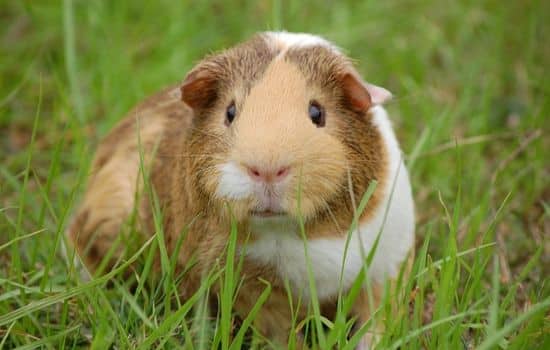Advertisements
Today I'm going to tell you everything you need to know before getting a guinea pig.
If you are looking for a loving and easy-to-care-for pet, consider getting a guinea pig!
Advertisements
In addition to being sociable, he gets along very well with children and you can have him comfortably both in your apartment and at home.
However, before acquiring them, it is essential to learn the basics of how to care for a guinea pig.
Advertisements
SEE TOO
FANCY FACTS ABOUT DOGS
THE MOST FAMOUS SPECIES OF BRAZILIAN BIRDS
This way, you can meet all his needs easily.
See Also:
So, if your intention is to acquire a guinea pig, take the opportunity to read this article.
I have put together everything you need to know about this cute pet, which offers pleasant company.
Are guinea pigs considered domestic animals?
Yes, it is considered a domestic animal. However, commercialization or adoption is possible, according to the law.
Therefore, if you want to have this pet, know that there are no impediments.
There is no need to carry out any type of regularization or formalization with the authorities.
It is possible to purchase a guinea pig in specialized stores and pet shops, as long as it meets all the requirements.
That's why I recommend that you look for a little pig to call your own.
First care for a baby guinea pig
Now that you have decided to have a charming and friendly pet for your life, it is time to learn about the care it needs.
Generally, we acquire a puppy as a pet, which requires more attention.
At this time, he needs to get used to people and the new environment.
That's why it's important to be patient, affectionate and give him space to get used to new things.
In addition, it is necessary to prepare the cage, buy accessories for them and plan their feeding.
But don't worry, these tasks are not complex.
Below, check out everything you need to know and prepare for the arrival of your little friend.
Cage
The ideal cages for guinea pigs should be at least 120 cm long by 160 cm wide.
You need to set aside a space in the house and surround it with fences for its safety.
Check if the openings in the enclosure are too wide. They need to be small so that the pet cannot escape.
Another concern regarding the place for him to live is the need to have a small house.
Guinea pigs like to sleep warmly. You can invest in a fabric pillow, like the ones used for cats.
It is worth noting that the climate is an important factor, as it cannot withstand very cold or very hot environments.
Ideally, the cage should be well ventilated, with a temperature of around 25 °C.
Food
Regarding the guinea pig's diet, it should include foods such as hay, fruits and specific food. The first option should always be available.
They should eat their food twice a day. Legumes, as well as fresh fruits and vegetables, can be used as snacks.
Among the options, you can offer:
- Tomato;
- Litter;
- Alfalfa;
- Cabbage;
- Melon;
- Carrot;
- Cucumber;
- Cabbage.
Accessories and toys
In the wild, guinea pigs live in burrows dug by themselves or other animals.
Therefore, after purchasing the cage, it is also necessary to purchase dens, tunnels and toys for the animal.
Distraction is guaranteed with wooden toys, which are essential for burning energy and wearing down teeth.
They should only be purchased from specialized stores to ensure quality for your pets' leisure time.
There are other important accessories, such as a feeder, drinker and brush.
They need to be brushed to remove excess hair, which helps with hygiene, just like what is done with cats.
Hygiene
How should a guinea pig be kept clean? Pay attention to the substrate. It should be cleaned, removing any waste present on it.
And they should be changed whenever they are very damp and dirty. Bathing is not recommended frequently.
Try to bathe your pet on hot days or when recommended by your veterinarian.
In this respect, guinea pigs are similar to cats. They do not require constant grooming.
Guinea pig facts you need to know
Did you know that guinea pigs, despite their name, are part of the rodent family and originate from South America?

Some interesting facts about these pets:
- They can weigh up to 1 kg and measure between 20 cm and 25 cm;
- Their life expectancy is between four and six years. Well cared for, they can live up to eight years;
- Herbivorous animals, therefore, feed only on plants;
- Teeth grow non-stop throughout life. Therefore, it is important to provide toys to help with tooth wear;
- Unlike other rodents, they do not have nocturnal habits;
- They love to take several naps throughout the day rather than sleeping for hours.
- The coat is short, medium or long, with different shades.
They are very sociable, affectionate, love to play and receive affection from their owner.
Therefore, I recommend that you plan well and acquire a pet like this as soon as possible to brighten up your life.
